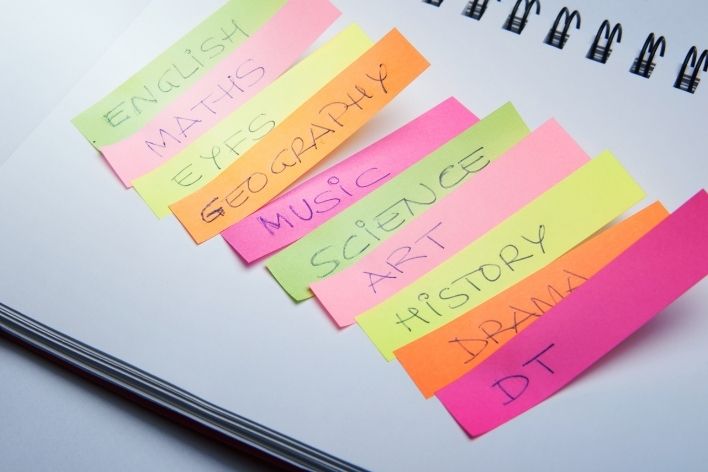How to Explore Elective Subjects In High School?

High school is that important period in students' lives when, to some extent, the path to their future careers is defined. While other core subjects such as mathematics, science, and English are important in knowledge provision, high school electives also provide great opportunities to follow one's interests and explore career fields one may have in store. Choosing the right electives will help students discover their passions, develop new skills, and thus have great insights into the different professions.
What Are Elective Classes in High School?
High school Elective courses are those that students select to take independently of their required, core curriculum classes. In contrast to required subjects, which are classes needed to graduate from high school, electives give students an array of choices to shape their academic studies to align with their particular interests and career choices: arts, humanities, technology, business, and even vocational training, to name a few.
Electives are an integral part of the high school experience. The classes allow students to explore many different areas without the burden imposed by standardized testing. In that regard, students may try classes that they perhaps would have never been exposed to and may be very instrumental in leading them to their future career interests.
How to Go About Selecting Electives
Elective subjects in high school are important decisions that may change the whole course of a student's educational journey and career paths. Here are some factors to consider:
1. Identify Interests and Passions:
First, start with the things you happen to like or would be interested in. If you're into any particular field, like art, technology, or business, find electives that match your interests and passions. Your exploration might get you a hint of whether these subjects are something you wish to pursue further.
2. Career Goals:
Consider your long-term aspirations in your career. If you have a particular career in mind, do some research into what electives will give you a foundational knowledge base and skillset to enter that career. As an example, if you were looking to enter the healthcare field, taking an elective in biology, psychology, or health sciences can be helpful.
3. Meet with Guidance Counselors and Teachers:
Your counselor and teacher can provide insight as to which electives will serve your interests and career goals best. They can further clarify the different prerequisites that some advanced courses require and how the electives merge with the requirements of college entrances.
4. Be adventurous:
Don't be afraid to step out of your comfort zone and try something you haven't tried before. The best thing about electives is they allow you to discover a new talent or interest that you might have never known you had. You will also gain more knowledge in a variety of subjects, which will make you a more well-rounded person, which colleges and employers love.
5. Do Not Overburden Your Work Schedule:
While studying and delving into these various interests, it is of utmost importance that you do not load your schedule with too much to handle in addition to your core subjects. In other words, only choose the elective subjects in high school in which you are genuinely interested, and that you will be able to study along with your core classes. If you burden yourself with too many hard electives, that may result in burnout and, subsequently, stress.
Best High School Electives for Career Exploration
The best electives to take in high school depend mostly on your career interests. Here are a few recommendations for electives about selected career fields:
STEM Careers:
Computer Science: Ideal if one has an interest in joining IT-related technology, programming, and software.
Advanced Mathematics: Important if someone is inclined toward engineering, data science, or any other math-intense field.
Science of the Environment: ideal for those who want to focus on sustainability, environmental engineering, or conservation.
Arts and Humanities:
Visual Arts: This best suits learners who are interested in a career in graphic design, fine arts, or illustration.
Drama and Theater: Ideal for those who plan to pursue an acting career, theater production, or performance arts.
Creative Writing: Suited for those who have been interested in writing books, journalism, or generally in the field of communication arts.
Business and Entrepreneurship:
Economics: Gives a broad view of economic principles and is beneficial for financial, business, and marketing careers.
Business Management: Offers an overview of the running of a company; thus, the ideal course for any budding entrepreneur.
Marketing: The students are taught behind-the-scenes tips and ways to promote products or services, which is an important thing in business.
Social Sciences and Law:
Political Science: This is very good for students contemplating law, politics, and government careers.
Sociology: It gives insight into social behavioral aspects and problems; therefore, students interested in the field of social work, education, and public policy get help.
History: It amply educates and equips students desiring a career in law, education, or historical research.

How Elective Subjects in High School Can Help in Career Explorations
Elective subjects in high school assist individuals in discovering their career fields through the exploration of the practical knowledge that is acquired in those areas. Here is how electives assist in discovering your career:
1. Practical Application:
Most of the elective courses would combine theoretical input with hands-on experience, be it through labs, workshops, or project-based assignments. Such practical experiences may give a student a feel of what it is to work in that field.
2. Skill Building:
Many times, electives build on specific skills that are quite valuable in the workplace, which include problem-solving, critical thinking, creativity, and communication. Being able to develop these skills while in high school would give students an edge over their colleagues in their respective careers.
3. Knowledge about one's Career:
It is through the electives that students gain career-related knowledge not provided by core subjects. For example, a student who may have an interest in digital media can take a graphic design elective, thereby knowing the tools and techniques that apply to a career path in the specified field.
4. Portfolio Development:
Through electives, a portfolio relevant to arts, design, or writing careers can also be developed. This portfolio will be helpful for admission to colleges or finding jobs as it showcases the talents and commitment of a student in their selected field.
5. Networking Opportunities:
Almost all elective courses will have students work on projects in groups or with other students, thus allowing them to network with students interested in the same thing as themselves. Such networking could lead to great internships, mentorship, or collaboration opportunities in the future.
How to Choose Electives with Future Goals in Mind
Electives become something to truly think about when it's time to choose which ones will better align with future college and career desires. Here are a few tips that are going to help in choosing electives that support long-term aspirations:
1. College Requirements:
Investigate the requirement and suggested elective courses for the particular college or program one is interested in attending. Some programs may require or prefer students to have taken electives in advanced sciences or languages.
2. Look into Dual Enrollment:
Many high schools have dual enrollment programs whereby students can take college-level courses as electives. These courses can give college credit and help kids prepare for higher education, thus giving them a head start on their degree.
3. Consider Career Requirements:
Some careers will have requirements, such as specific knowledge or certifications that may be fulfilled by taking specific electives in high school. Students who want to be EMTs may take a first aid or health sciences class to prepare them for certification.
4. Be Flexible:
As much as it is important to select electives that are in tandem with your goals, it is also wise to remain flexible. High school is a time for exploration, and your interests might change. Choose a mix of electives that will allow you to look into fields and keep your options open.
5. Balance Passion with Practicality:
So, a balance between passion and practicality in these elective subjects in high school is pretty important. For instance, taking art as an elective subject in high school for which you have a lot of passion, but having plans to do business, it will be commendable that you take both art and business as electives.
Conclusion
So, Elective Subjects strengthen the academic foundation to broaden the career path. Elective classes in high school can alone provide opportunities for students to nurture their interests and develop crucial skills, which in turn may offer valuable inputs into possible career decisions. With the right choice of electives, befitting their passion and career objectives, the students can ensure that the time spent in high school yields maximum return value and lays the foundation for future success.
Whether it relates to the fields of STEM, arts, healthcare, business, or anything in between, high school is a great avenue to take electives in your desired verticals and set up a firm foundation for your future. Knowing what the elective classes are, how to select the best electives that suit your interests, and integrating those selected subjects with your college and career goals will maximize your high school time and lay a path towards a very successful and satisfying career.
FAQs about using electives to explore career interests in high school:
What do you understand from elective classes in high school?
Elective classes are some of the classes that students can take, which are based on interest, thus allowing their curiosity about different subjects apart from core compulsories.
How do electives contribute to career explorations?
Electives allow students to sample careers, acquire specific skills, and hence identify possible occupations through practical exposure to the working environment along with specialized knowledge in the field concerned.
What are the best classes to take to prepare for college?
The best elective courses to take in college that help with preparation are those that deal with your intended major or vocation, such as advanced sciences for pre-med students or business courses for budding entrepreneurs.
We hope you liked the above article. Please do not forget to share this blog with your friends and community members to spread awareness of "How to Explore Elective Subjects In High School?”
Other Related Sections
NCERT Solutions | Sample Papers | CBSE SYLLABUS| Calculators | Converters | Stories For Kids | Poems for kids| Learning Concepts I Practice Worksheets I Formulas | Blogs
Admissions Open for
CBSE Schools In Popular Cities
- CBSE Schools in Bangalore
- CBSE Schools in Mumbai
- CBSE Schools in Pune
- CBSE Schools in Hyderabad
- CBSE Schools in Chennai
- CBSE Schools in Gurgaon
- CBSE Schools in Kolkata
- CBSE Schools in Indore
- CBSE Schools in Sonipat
- CBSE Schools in Delhi
- CBSE Schools in Rohtak
- CBSE Schools in Bhopal
- CBSE Schools in Aurangabad
- CBSE Schools in Jabalpur
- CBSE Schools in Jaipur
- CBSE Schools in Jodhpur
- CBSE Schools in Nagpur
- CBSE Schools in Ahmednagar
- CBSE School In Tumkur











